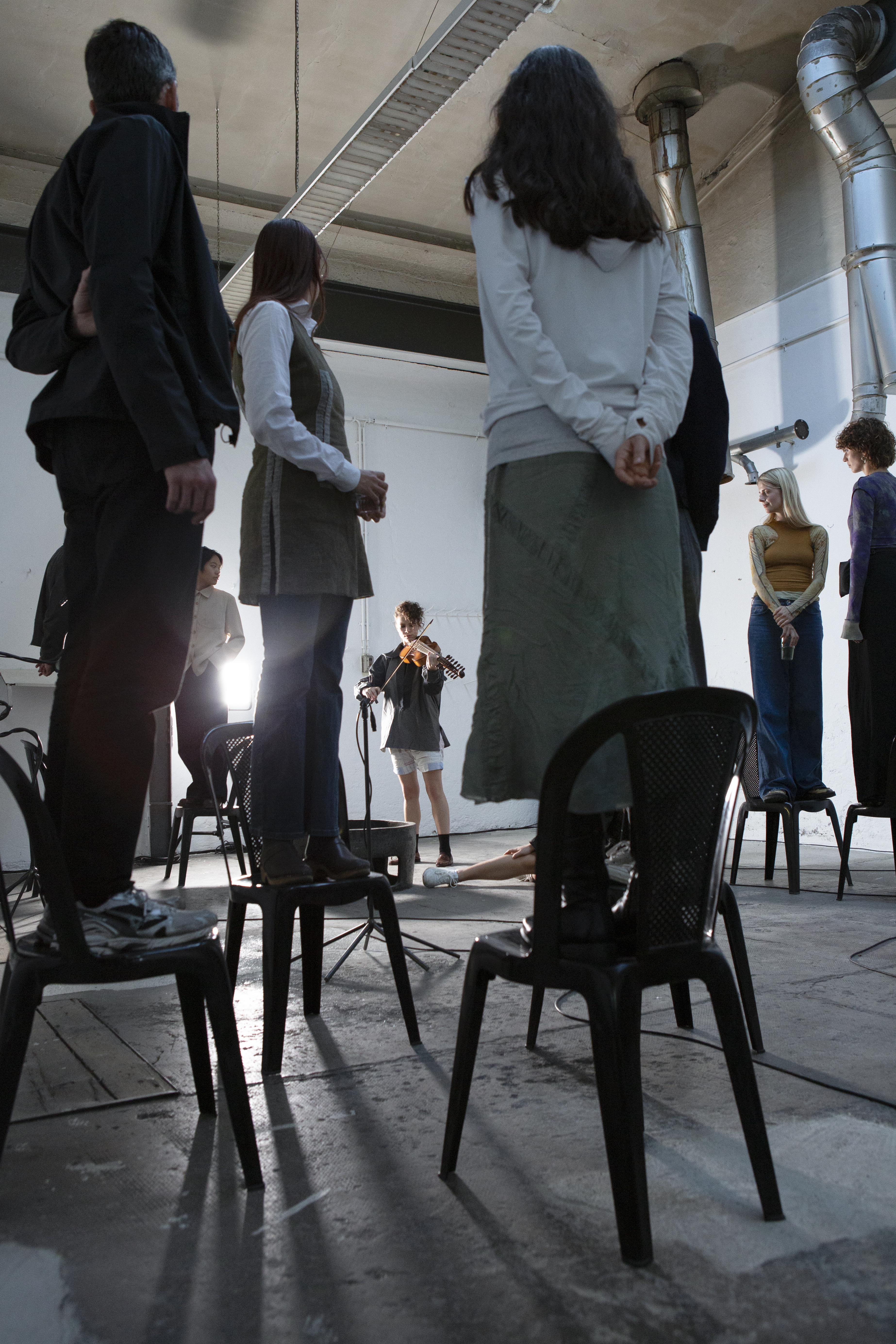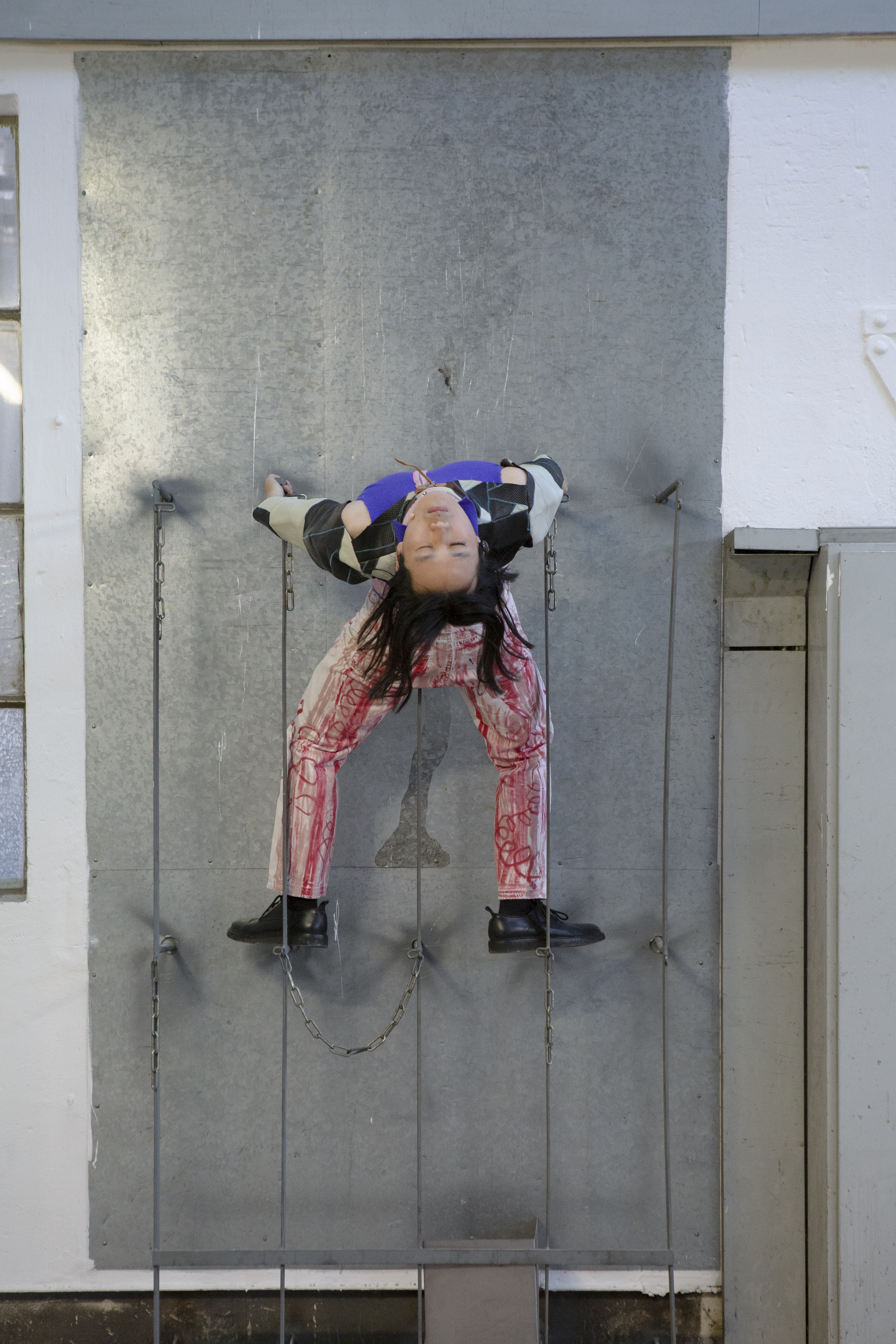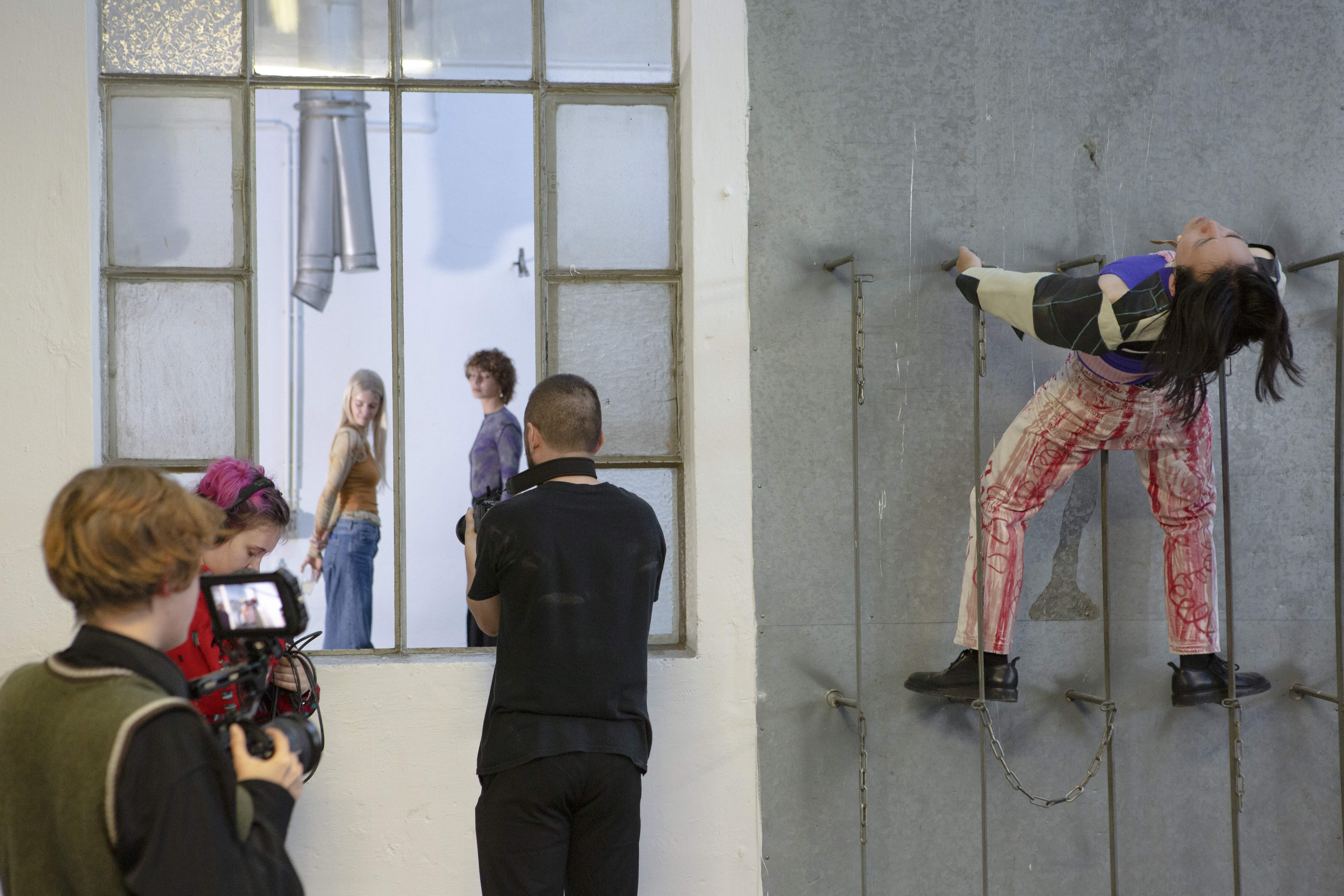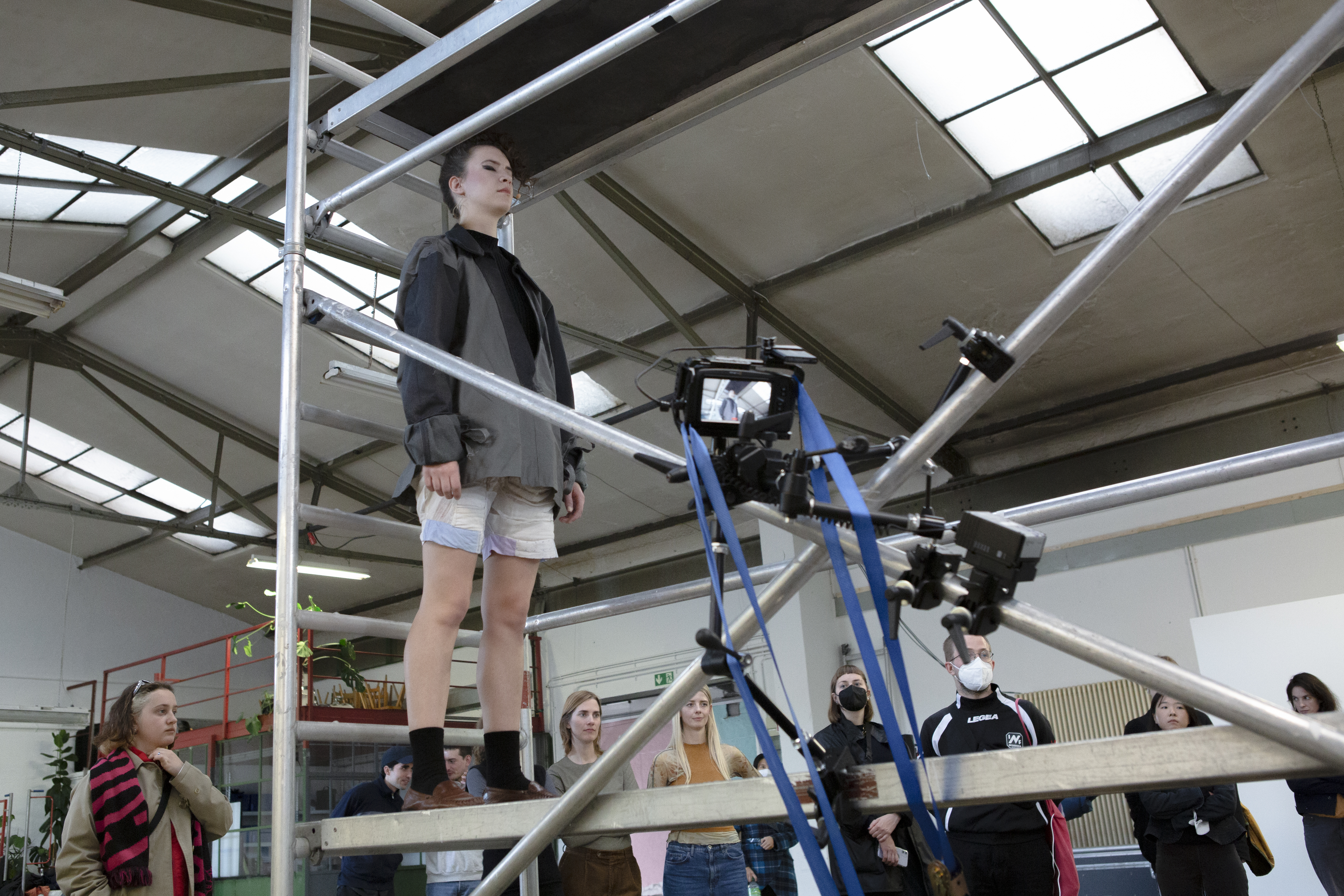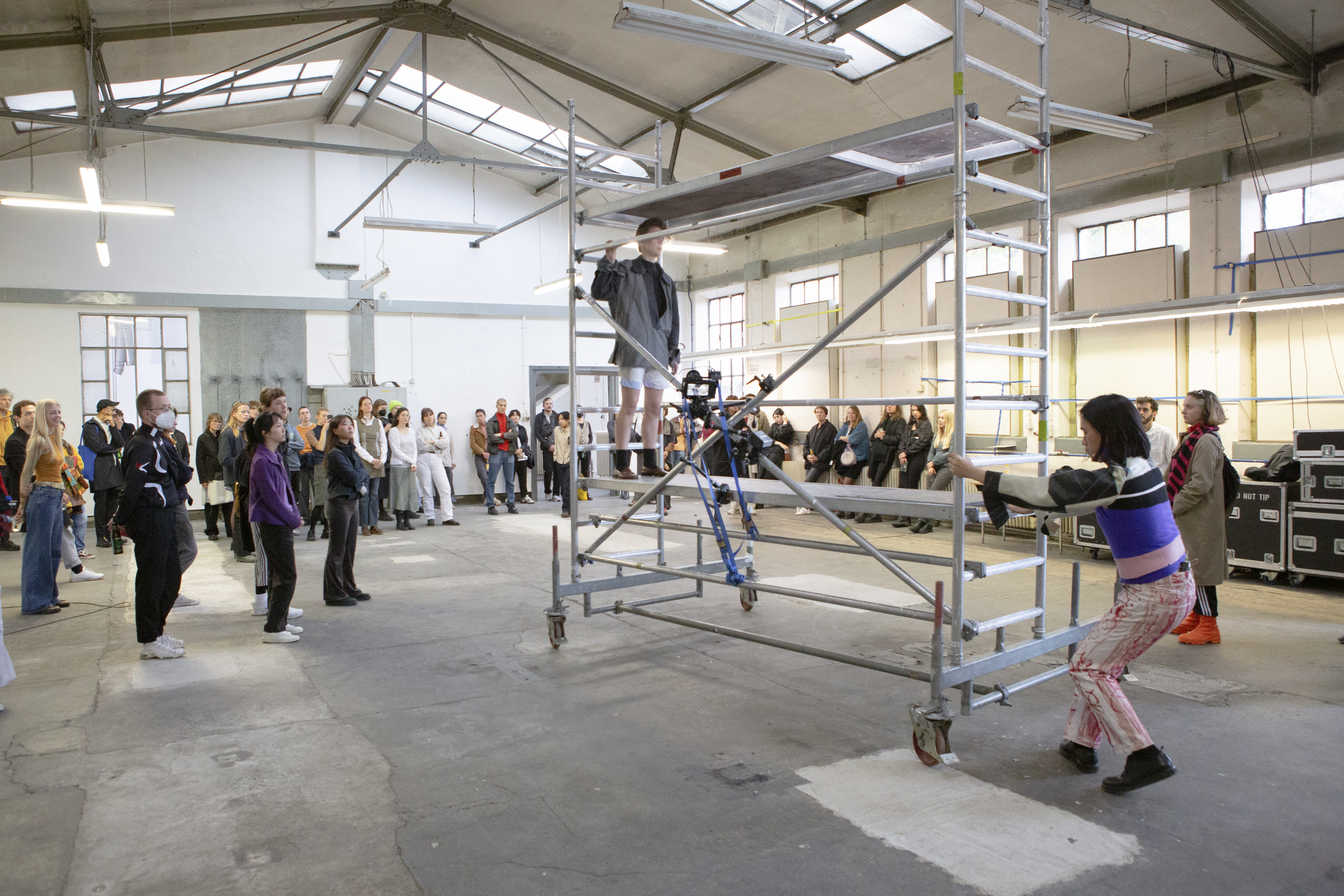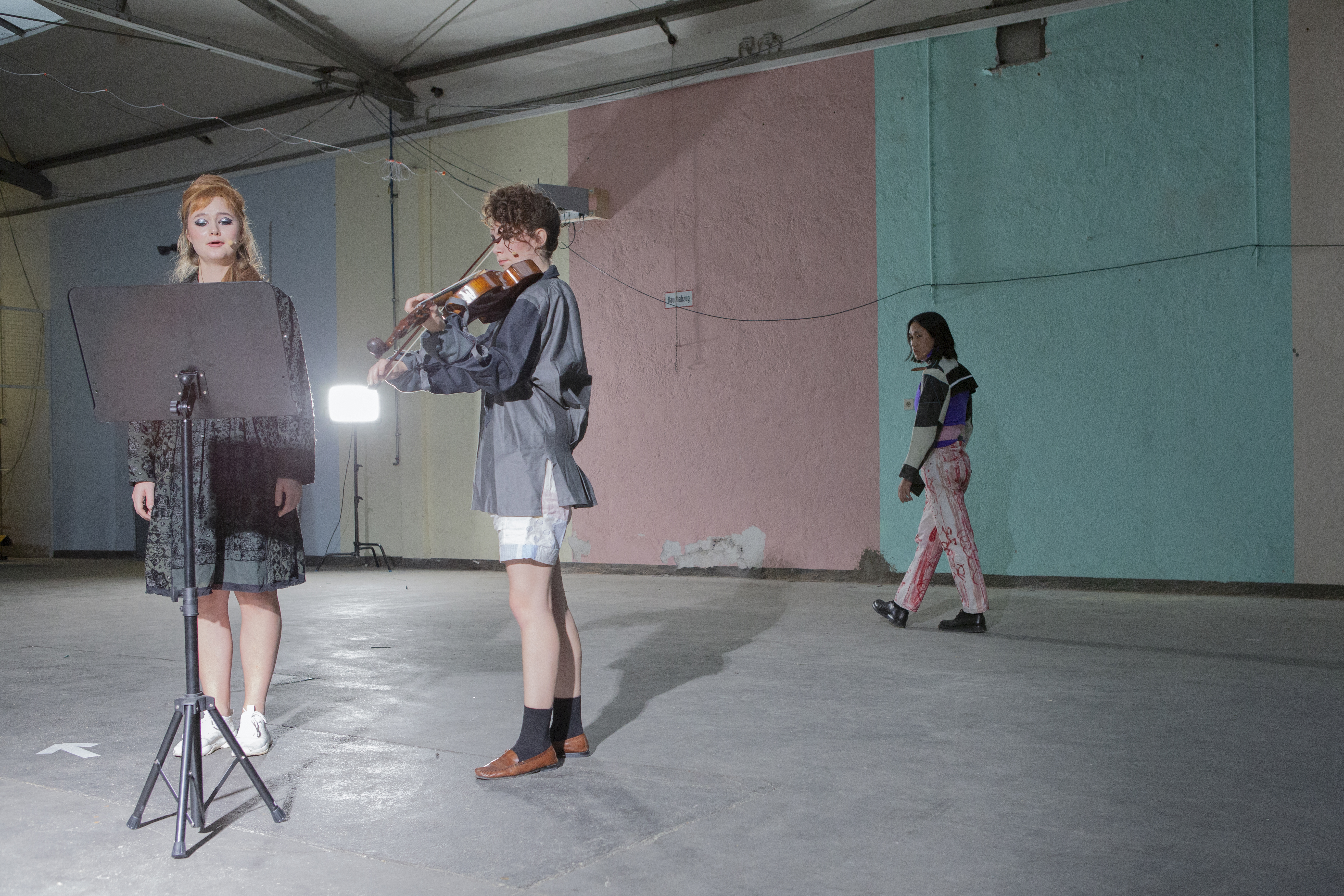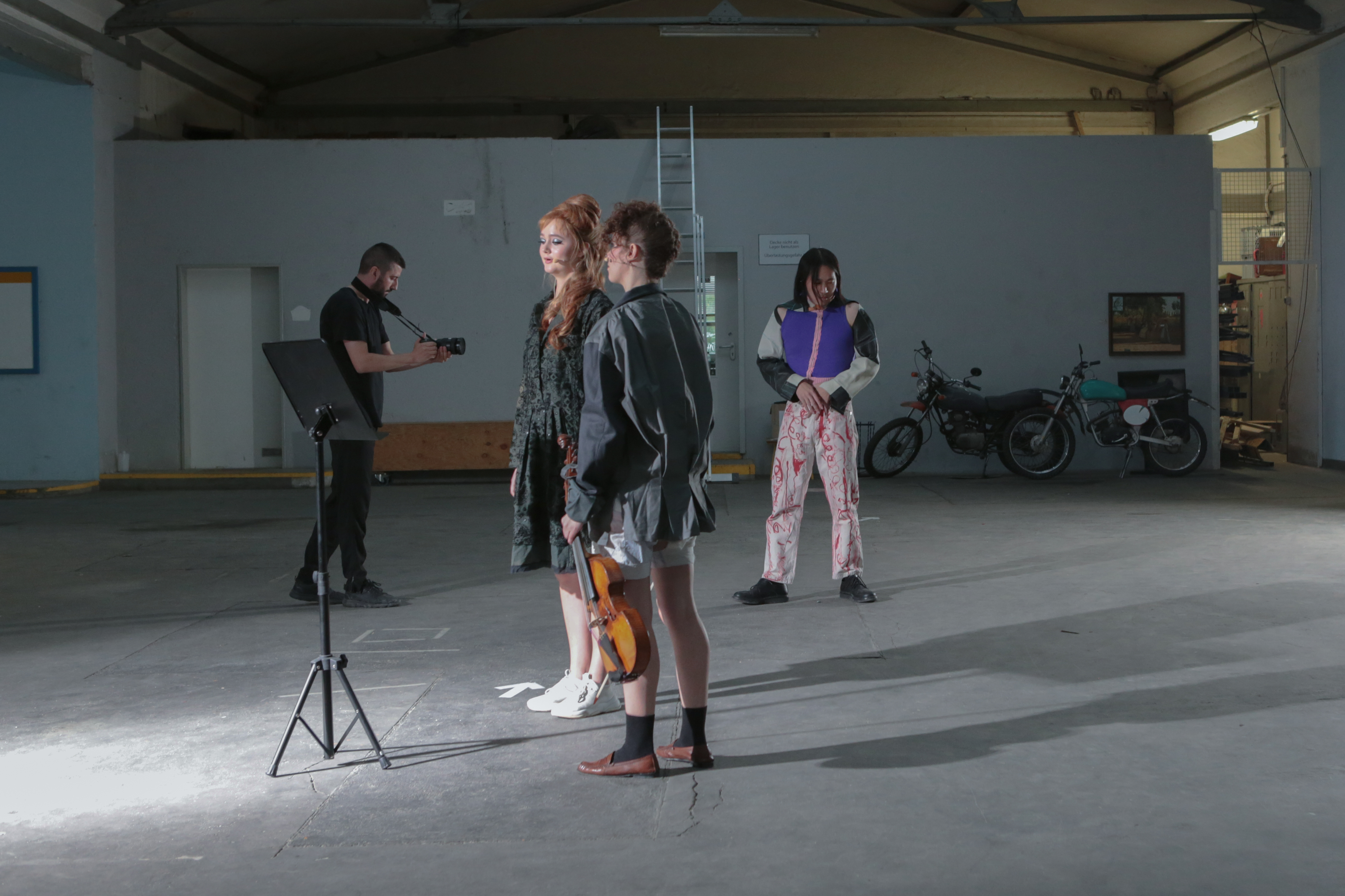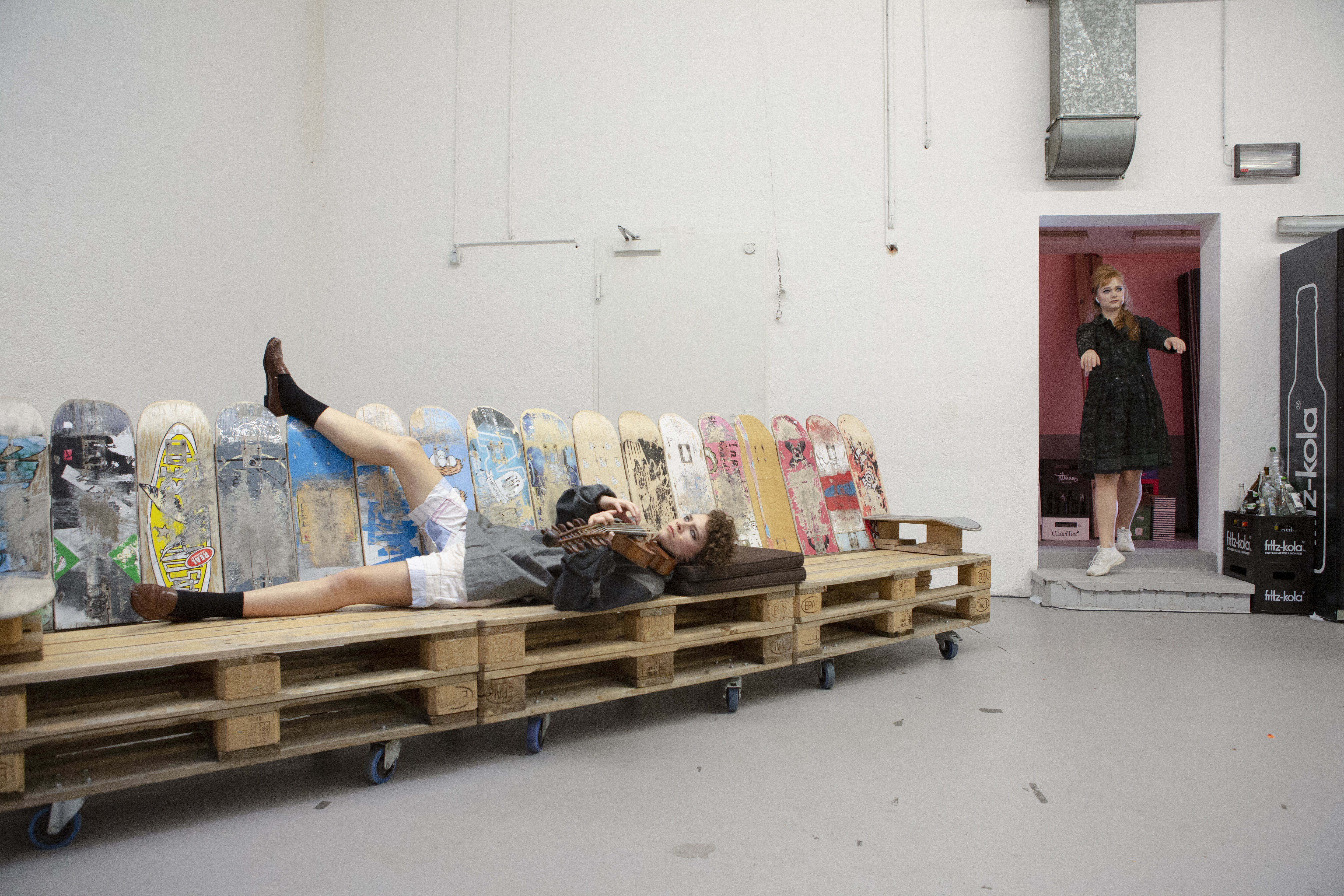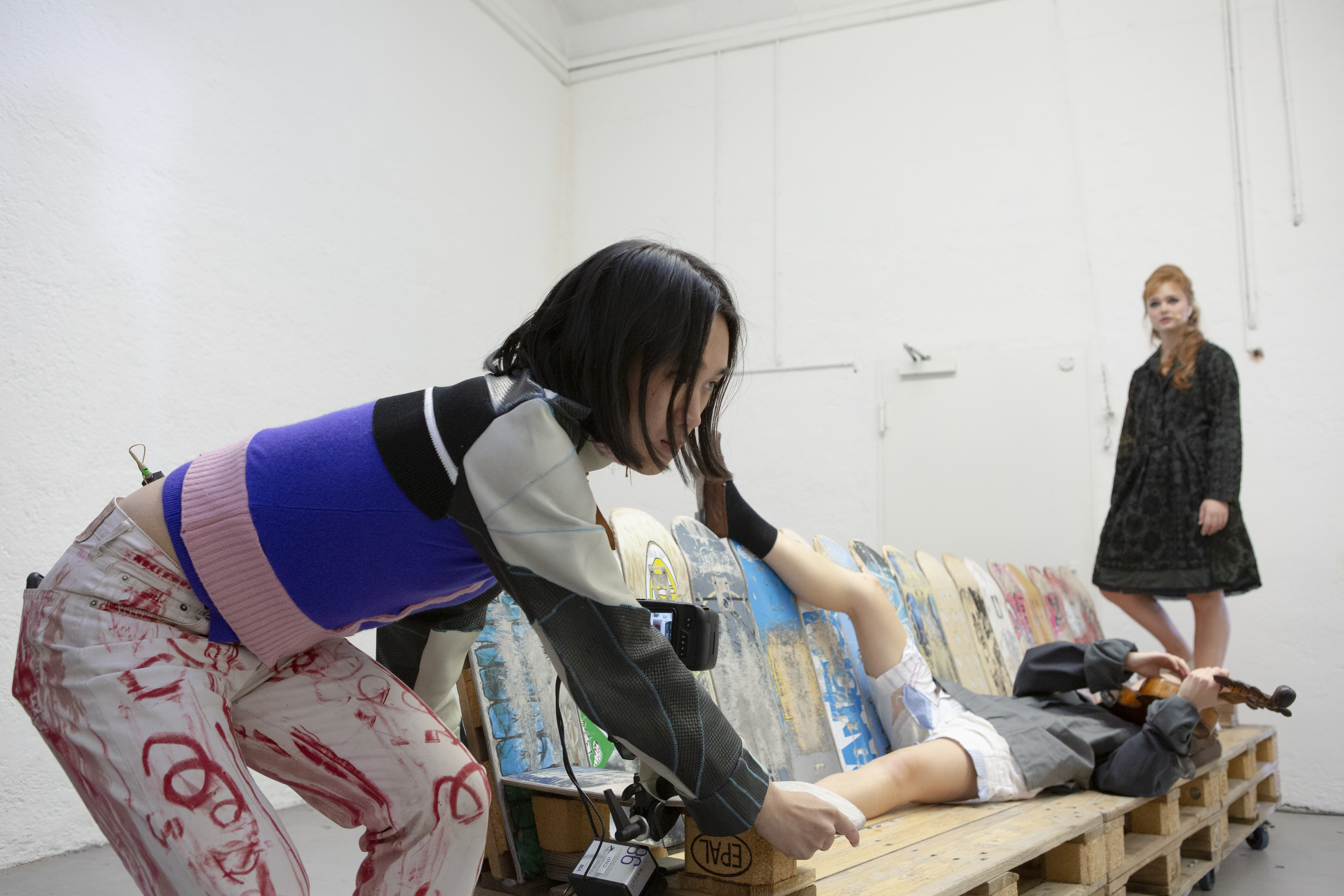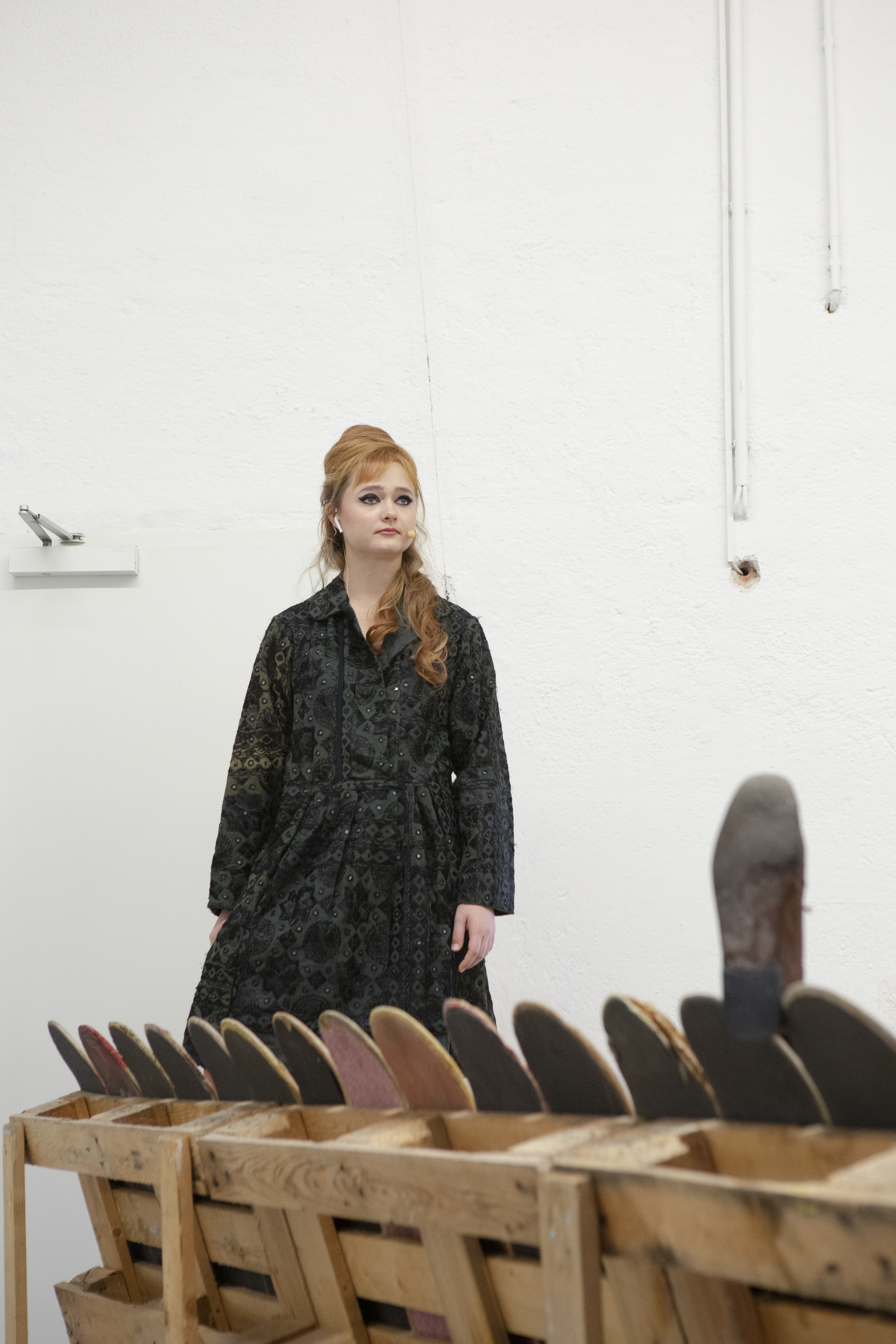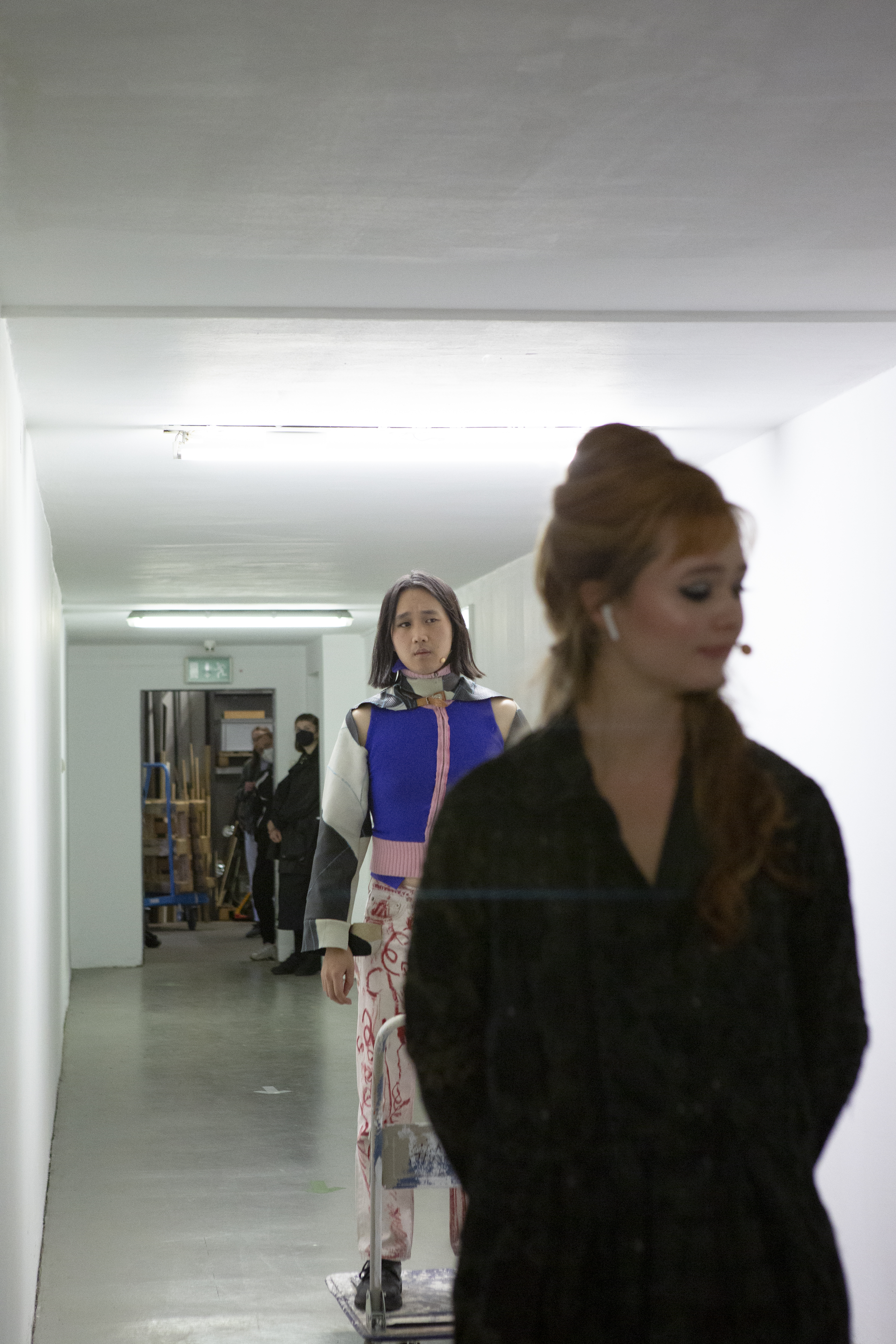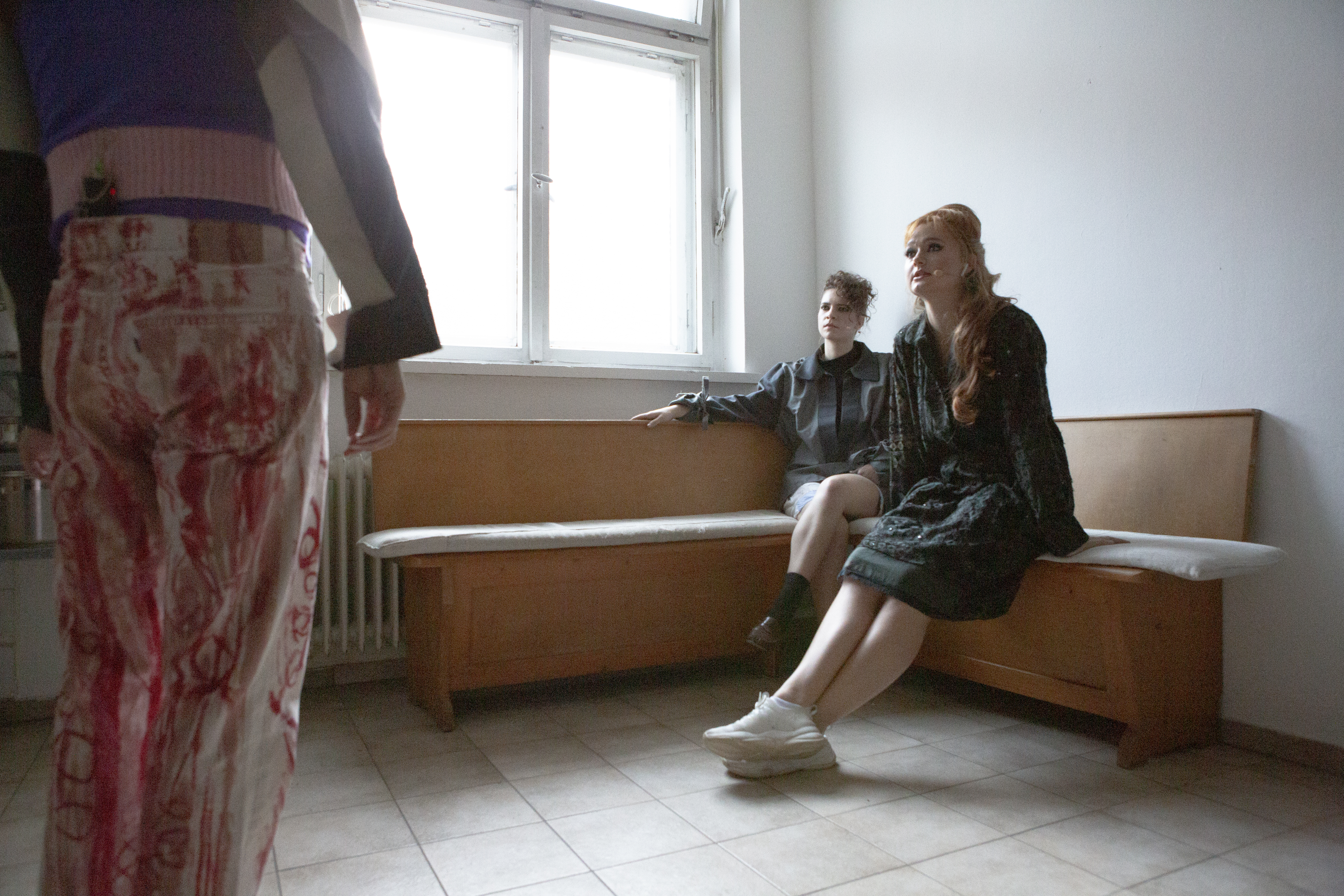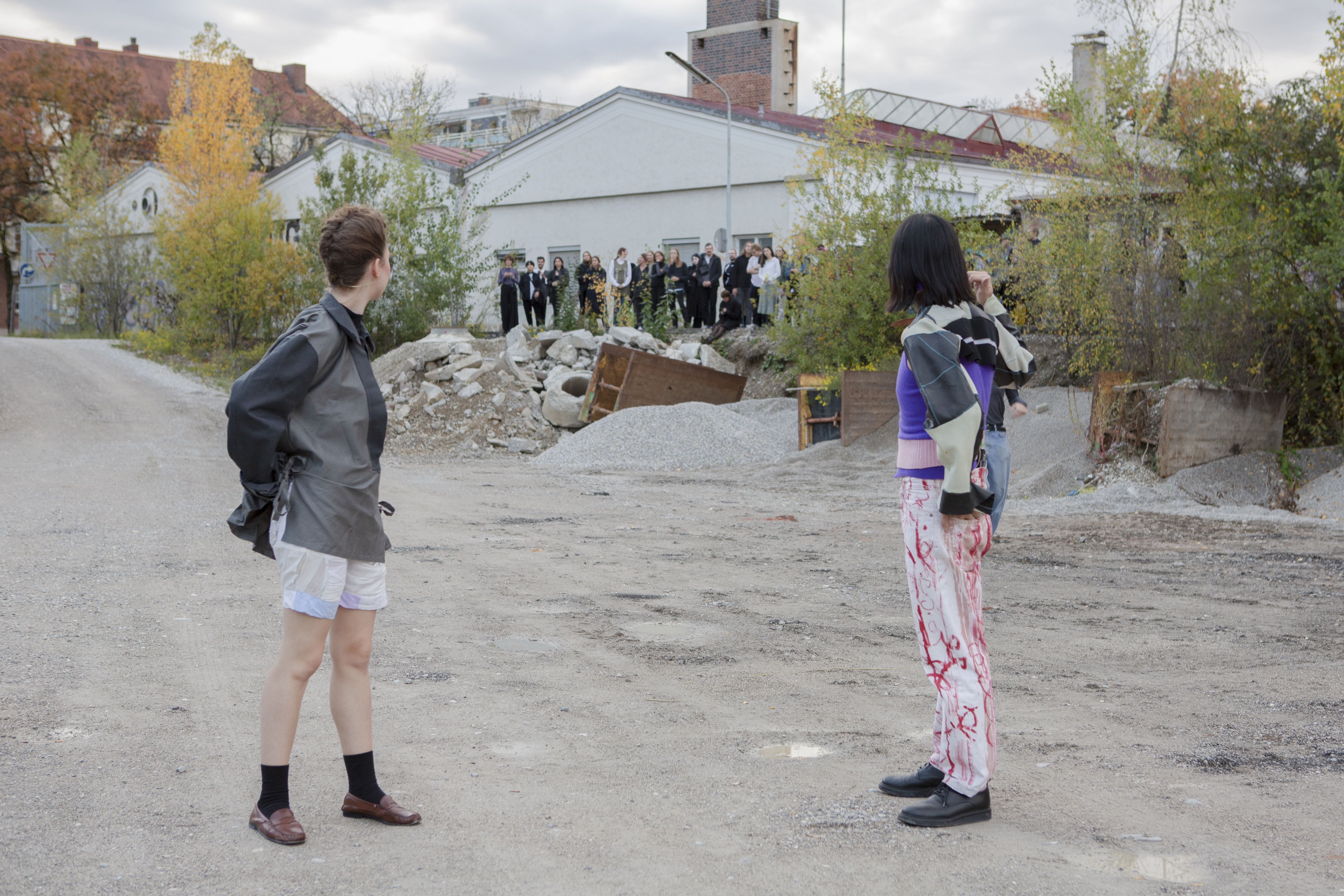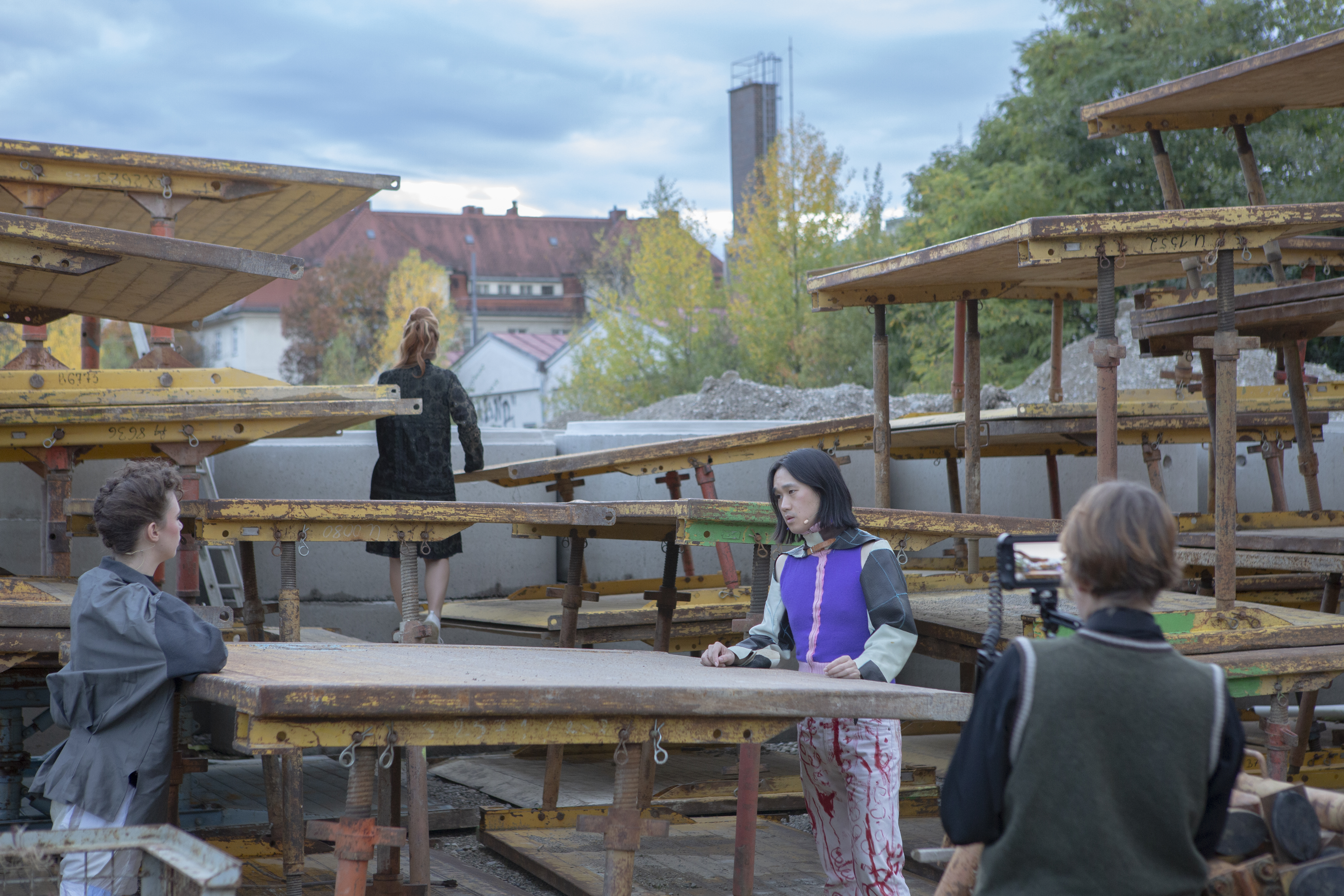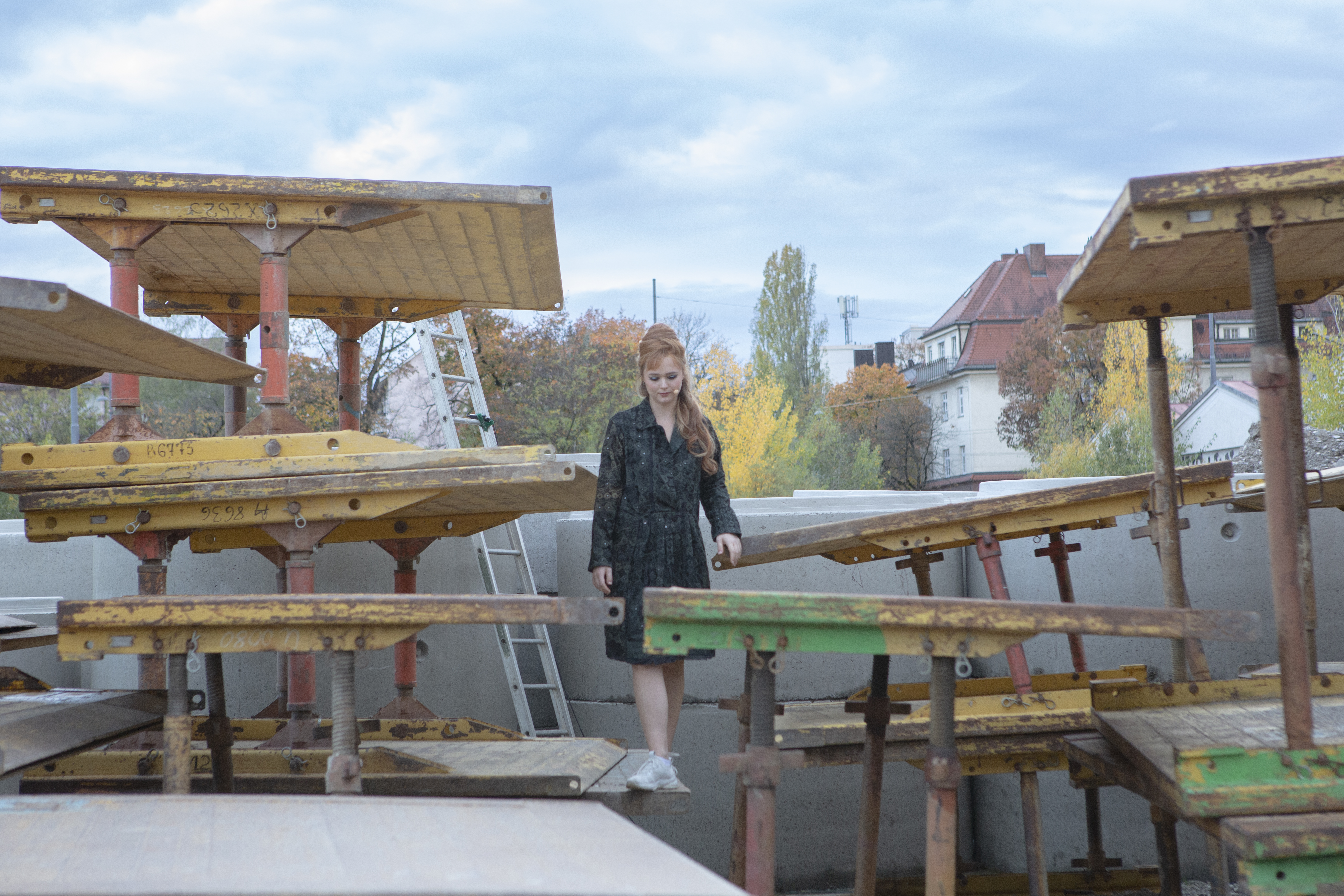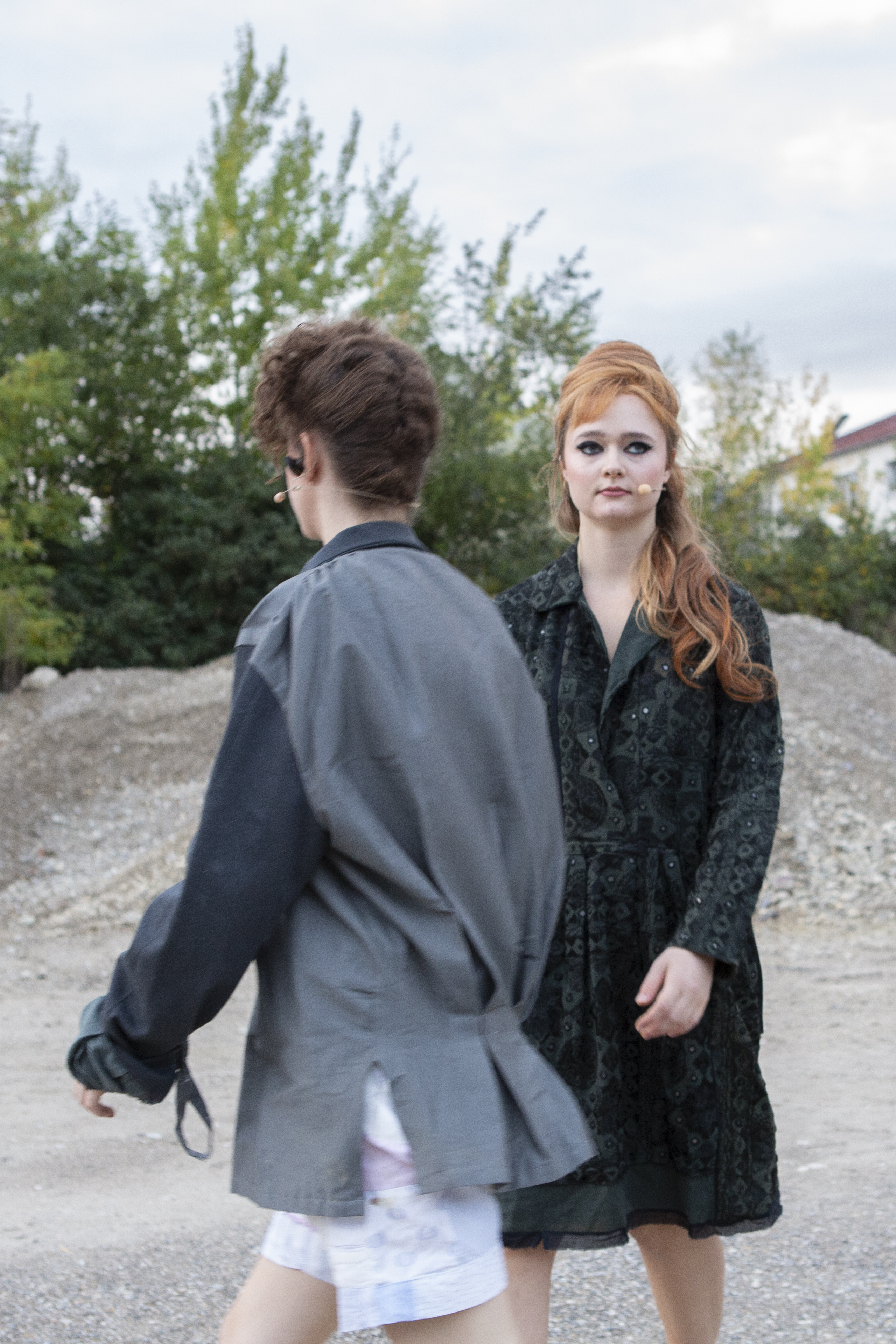Ivan Cheng
Passagiato's: Stealing Valour
Performance
15/10/22 5 pm
Through performance, text and film, Ivan Cheng (1991, lives and works in Amsterdam) creates context-specific situations that deploy hosts as subjectivities and performers as hosts to address issues of accessibility and publics.
Passagiato’s: Stealing Valour (2022) is Cheng’s most recent work, developed for Performing Infrastructures, and forms the second installment of a three-part cycle taking place in three locations in Germany over three months. Proposing a framework that draws from elements of Walter Salles’ film The Motorcycle Diaries (2004), which uses cinematic tools to alternately mythologise and authenticate, Cheng’s cycle reflects on revolution as (commodified) cultural object. Rather than centring Ernesto “Che” Guevera’s journey as a young medical student through South America, Cheng writes himself through a character loosely inspired by the singer and actress Liza Minnelli as oeuvre and icon. In Salles’ biopic of the countercultural icon the portrayal of “locals” marks a turning point in the narrative of Che Guevara’s politicisation. Cheng sharply transposes this objectifying gaze onto the various production contexts and stages (distorted) images of the local structures and people on his journey through Germany. In Munich, he partly incorporates ZIRKA’s social environment and has cultural workers based in the city appear in pop(culturally) layered roles that blend personal and collective imagery.
Passagiato’s: Stealing Valour is written as five scenes in an Italian restaurant and hotel in Munich, in which a celebrity visitor, head chef, and business owner interact over five consecutive mealtimes. With each meal staged as a moving camera shot between spaces of ZIRKA, Cheng develops a complex game of representation, locality and globality that pushes notions of authenticity and originality to a point of deconstruction.
Performed by Ivan Cheng, Maximiliane Norwood (Viola d'Amore) as Ganymede Päffgen and Henrike Legner (Soprano) as Helene Birkin.
Garments by Good and Bad (Marina M. Kolushova, Victor Stuhlmann, Ossi Lehtonen), hair and make-up by Lilo Lucia Meyer, with wigs by Münchner Kammerspiele. Camera by Lara Fritz, Christoph Schaller. Sound and lighting by Jakob Braito, Maxi Blässing. Chairs loaned from Pathos München e.V., bench loaned from Skateschule München. Special thanks to Ophelia Flassig.
Defining infrastructures is a question of perspective: all the technologies that grant movement between institutions or systems and thus form the conditions for wider processes in society can be described as infrastructures. Since these dynamic junctions are deeply embedded in our everyday life and exist through repetition, they often only become visible in the event of a disruption or failure, when they paralyse other elements in a chain and thus reveal complex processes of circulation and distribution of monetary, social or cultural capital. Infrastructures are thus not only fundamentally relational, they also reproduce and represent at an elementary level the grand ideological structures that choreograph our lives. Drawing on the idea that infrastructures organise movement, Performing Infrastructures examines the extent to which cultural performances—speech acts and collective choreographies—themselves act as forms of infrastructure and how they regulate social participation.
Performing Infrastructures took place on a site that, due to its history, can be read as a symbol of overlapping material and immaterial infrastructures. ZIRKA – Zentrum für interdisziplinäre Raum- und Kulturarbeit was recently founded on the site of the so-called Kreativquartier (Creative District), an area that has been growing steadily since the 1970s and is a mixture of studios, venues and production facilities for the independent (performing) arts scene, as well as entrepreneurs in the field of “creative work,” and is thus part of the city’s cultural policy agenda. Before its conversion, however, the building served as the operations centre for Munich’s city drainage system for over 60 years and thus alludes to precisely those tangible and at the same time mostly invisible infrastructures that are firmly integrated into our everyday lives.
In October 2022, the two-day programme of performances, workshops and installations drew on the processual, relational and (im)material characteristics of infrastructures themselves. The artistic practices of Ivan Cheng, Nina Emge, Johanna Klingler & Alexandra Symons-Sutcliffe and Olia Sosnovskaya deal with power relations of cultural infrastructures. At the same time, they ask for alternative systems of movement by means of collective forms of organisation.
Organised by
Elena Setzer, Franziska Linhardt & Jakob Braito
Photos: Constanza Melendéz
